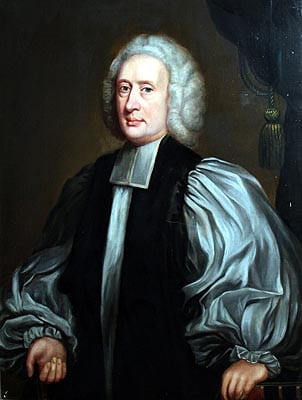My picture of one layman’s reaction—and I think it is not a rare one—would be incomplete without some account of the hopes he secretly cherishes and the naïve reflections with which he sometimes keeps his spirits up.
You must face the fact that he does not expect the present school of theological thought to be everlasting. He thinks, perhaps wishfully thinks, that the whole thing may blow over. I have learned in other fields of study how transitory the ‘assured results of modern scholarship’ may be, how soon the scholarship ceases to be modern. The confident treatment to which the New Testament is subjected is no longer applied to profane texts. There used to be English scholars who were prepared to cut up Henry VI between half a dozen authors and assign his share to each. We don’t do that now. When I was a boy one would have been laughed at for supposing there had been a real Homer: the disintegrators seemed to have triumphed for ever. But Homer seems to be creeping back. Even the belief of the ancient Greeks that the Mycenaeans were their ancestors and spoke Greek has been surprisingly supported. We may without disgrace believe in a historical Arthur. Everywhere, except in theology, there has been a vigorous growth of scepticism about scepticism itself. We can’t keep ourselves from muttering multa renascentur quae jam cecidere. [“Many now in disuse will be revived”—Horace]
Nor can a man of my age ever forget how suddenly and completely the idealist philosophy of his youth fell. McTaggart, Green, Bosanquet, Bradley seemed enthroned for ever; they went down as suddenly as the Bastille. And the interesting thing is that while I lived under that dynasty I felt various difficulties and objections which I never dared to express. They were so frightfully obvious that I felt sure they must be mere misunderstandings: the great men could not have made such very elementary mistakes as those which my objections implied. But very similar objections—though put, not doubt, far more cogently than I could have put them—were among the criticisms which finally prevailed. They would now be the stock answers to English Hegeliansim. If anyone present tonight has felt the same shy and tentative doubts about the great Biblical critics, perhaps he need not feel quite certain that they are only his stupidity. They may have a future he little dreams of.
C. S. Lewis, “Modern Theology and Biblical Criticism,” in Christian Reflections (Grand Rapids: Eerdmans, 1985), pp. 162-63


